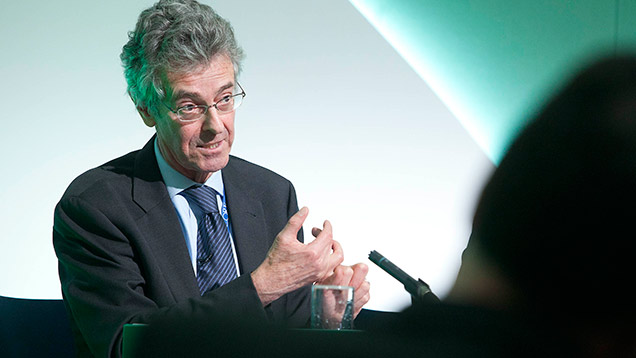Soil Association ‘bemused’ by organic farming criticism
 Lord Krebs © Jonathan Page
Lord Krebs © Jonathan Page The Soil Association has hit back at suggestions that organic farming could be worse for the environment than conventional farming methods.
Climate expert Lord John Krebs told the Oxford Farming Conference on Wednesday (7 January) that organic farming might do more damage to the environment due to increased land required and carbon released from the soil.
“The fact is organic farming is, in general, less productive per hectare than conventional farming and if we want to produce more organic food we need more land to do it, which releases more carbon into the atmosphere,” he said.
See also: Only 100 harvests left in UK farm soils, scientists warn
Lord Krebs, who advises the government on climate change policy, argued that agricultural methods, such as minimum or no tillage, could help to protect and manage soils and store carbon to prevent the release of greenhouse gases into the atmosphere.
According to the UK government, agriculture is responsible for 9% of the UK’s greenhouse gas emissions, from livestock such as cows, fertilisers and soils.
The government has committed to reducing greenhouse gases (GHGs) by at least 80% by 2050.
But Lord Krebs warned agriculture’s proportion of GHGs could rise to 30% if no action is taken.
In his lecture, Climate Change – Challenge or Opportunity, Lord Krebs also called for a smarter use of nitrogen fertiliser and said benefits from the environment could arise from the use GM crops.
However, Soil Association chief executive Helen Browning said she was “bemused” by Lord Krebs’ hostility towards organic farming.
She cited a scientific paper published by US scientists at the University of California Berkeley, which stated organic farming could play an important role in feeding the world.
“A global meta-analysis has shown that organic farming stores significant amounts of carbon in the soil over time, and is a very effective way of combating climate change.”
Ms Browning said conversion to organic typically involves putting land into nitrogen-fixing clover and grass mixes, and these absorb rather than release carbon to the atmosphere.
She added: “When the increasing use of non-renewable inputs is considered, non-organic farming is significantly less productive than organic, and the productivity of non-organic is falling because conventional farming is using more and more fertiliser inputs simply to keep yields level.”
However, according to Defra’s latest British Survey of Fertiliser Practice (2013), overall fertiliser use on crops and grassland has been steadily falling since 1983.
The Soil Association is a charity that promotes sustainable organic farming methods and organic food.
